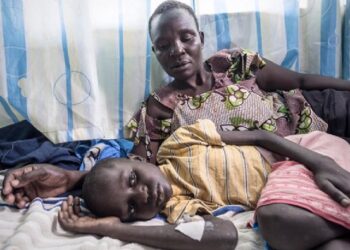Uganda is set to manufacture larvicide, an insecticide used to kill mosquitoes in their infantry, health minister Dr Jane Ruth Aceng said yesterday. A larvicide is used to eliminate immature mosquitoes, also known as mosquito larvae, while larviciding refers to the controlling of mosquitoes in their larval stage.
This follows the signing of a memorandum of understanding (MOU) between the Ugandan and the Egyptian governments on Larval Source Management (LMS) at the health ministry yesterday. Aceng and the deputy chief of mission at the Egyptian embassy, Haitham Mokhtar signed on behalf of their governments.
“This MOU covers the setting up of a local production unit to make larvicide and other public health products,” Aceng said.
The larvicide production unit will be based in one of the industrial parks. It will provide sponsorship and grant opportunities for young local scientists, industrial capacity building and technology transfer activities. Larvicide use is set to start in northern and western Uganda districts. Until the local unit starts production, Uganda will continue importing larvicide from Egypt.
Over 15 million Ugandans will benefit from larviciding before a countrywide roll-out over a threeyear period. The insecticide will be applied in waterlogged places, wetlands and near water bodies the major breeding places for mosquitoes.
World Health Organisation (WHO) recommends larviciding as a supplement to other core malaria interventions.
The minister said the new intervention complements the first three government campaigns: indoor residual spray, test and treat and use of insecticide-treated mosquito nets. The larvacide to be made from green leaves has no environmental and side effects on human beings.
“For the last nine years, we have been conducting research. We found out that this particular larvicide from Egypt is safe,” Aceng said.
Despite the lack of its application in Africa, for over half a century larval source management has been the main focus of mosquito control programmes for decades in the US, Canada, Europe, Brazil and Singapore. Malaria burden on Uganda Malaria is the leading, most widespread and serious communicable disease in Uganda.
It is a major public health problem with 95% of the country’s population is endemic; the remaining 5% is prone to malaria epidemics. It is estimated that every year, malaria contributes up to $200m in lost income to the economy. Malaria remains the major cause of death in Uganda with approximately 70,000 to 100,000 Ugandans dying each year from the disease.































































